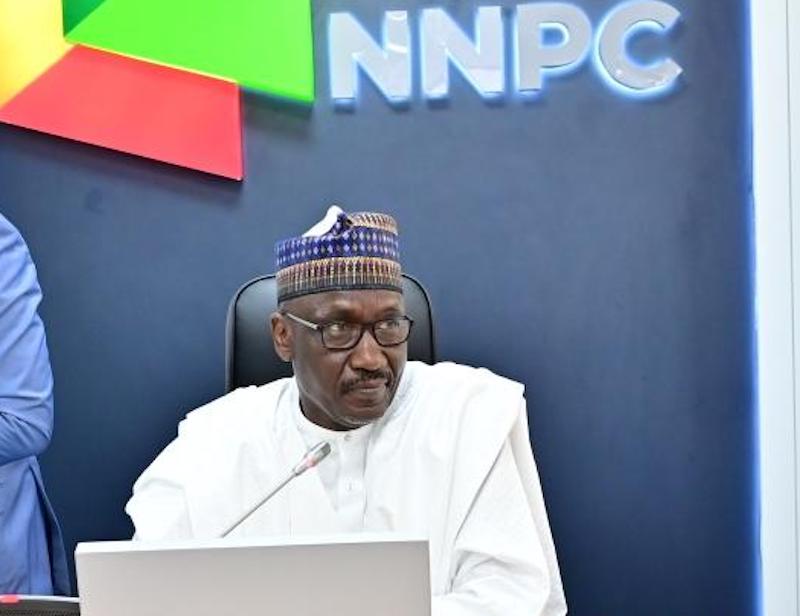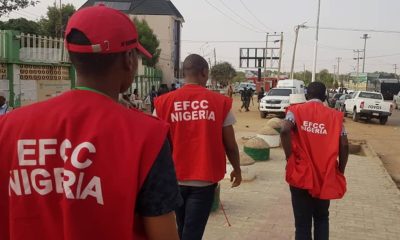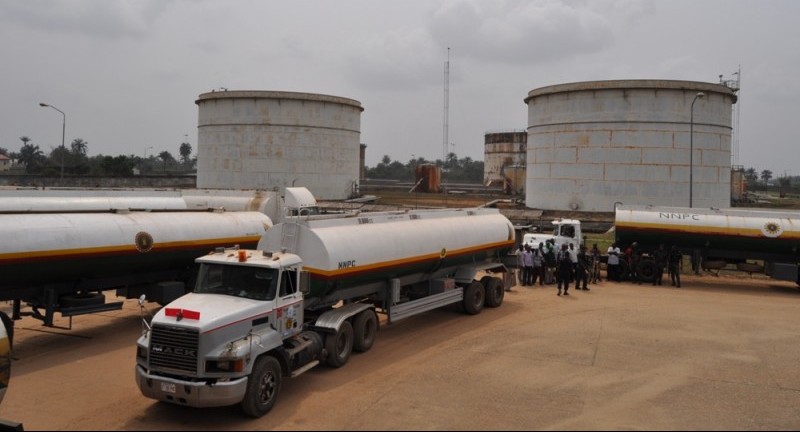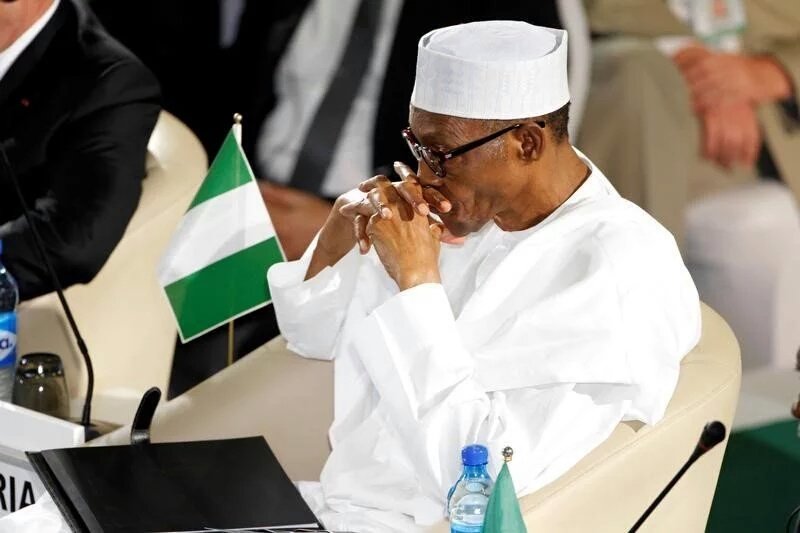Economy
Embattled Baru Breaks Silence on $25b NNPC Contracts Mess
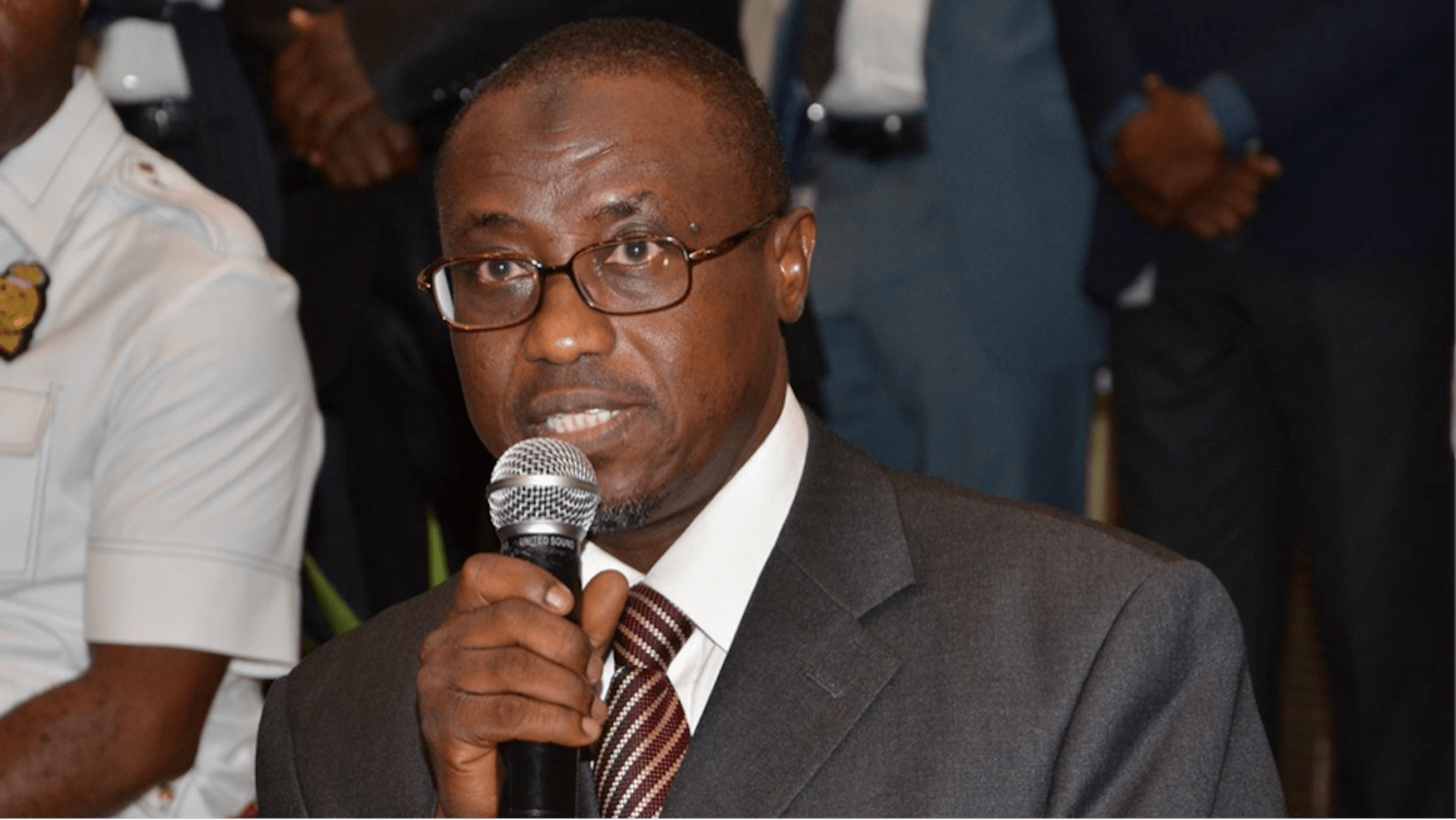
By Modupe Gbadeyanka
Group Managing Director (GMD) of the Nigerian National Petroleum Corporation (NNPC), Mr Maikanti Baru, has reacted to the letter written to President Muhammadu Buhari in August 2017 by the Minister of State for Petroleum Resources, Mr Ibe Kachikwu, alleging the award of contracts by the GMD without due process as well as insubordination.
In a statement released on Monday in Abuja by the Group General Manager, Group Public Affairs Division of the NNPC, Mr Ndu Ughamadu, the GMD said he was responding to the issues following a directive by the President to him to do so.
Below is the statement released today by the NNPC, which was obtained by Business Post.
Following the publication of alleged lack of adherence to due process in the award of NNPC contracts, the President ordered the Group Managing Director (GMD) and Management of the Nigerian National Petroleum Corporation (NNPC) to consider and respond expeditiously to the allegations.
The substance of the allegations made by the Minister of State for Petroleum Resources, in a letter to the President dated 30th of August 2017, is that a number of “major contracts were never reviewed or discussed with me (sic) the NNPC Board.”
It is important to note from the outset that the law and the rules do not require a review or discussion with the Minister of State or the NNPC Board on contractual matters. What is required is the processing and approval of contracts by the NNPC Tenders Board, the President in his executive capacity or as Minister of Petroleum, or the Federal Executive Council (FEC), as the case may be. There are therefore situations where all that is required is the approval of the NNPC Tenders Board while, in other cases, based on the threshold, the award must be submitted for presidential approval. Likewise, in some instances it is FEC approval that is required.
It should be noted that for both the Crude Term Contract and the Direct Sale and Direct Purchase (DSDP) agreements, there are no specific values attached to each transaction to warrant the values of $10billion and $5billion respectively placed on them in the claim of Dr. Kachikwu. It is therefore inappropriate to attach arbitrary values to the shortlists with the aim of classifying the transactions as contracts above NNPC Tenders Board limit. They are merely the shortlisting of prospective off-takers of crude oil and suppliers of petroleum products under agreed terms. These transactions were not required to be presented as contracts to the Board of NNPC and, of course, the monetary value of any crude oil eventually lifted by any of the companies goes straight into the federation account and not to the company.
Furthermore, contrary to the assertion of Dr. Kachikwu that he was never involved in the 2017/2018 contracting process for the Crude Oil Term Contracts, Dr. Kachikwu was in fact expressly consulted by the GMD and his recommendations were taken into account in following through the laid down procedure. Thus, for him to turn around and claim that “…these major contracts were never reviewed or discussed with me…” is most unfortunate to say the least.
THE NNPC CONTRACTING PROCESS
The contracting process in NNPC is governed by the following:
- Provisions of the NNPC Act
- The Public Procurement Act, 2007 (PPA)
iii. Procurement method and thresholds of application and the composition of Tenders Board as provided by the Secretary to the Government of the Federation (SGF) Circular reference no. SGF/OP/1/S.3/VIII/57, dated 11th March, 2009.
- NNPC Delegation of Authority Guide
- Supply Chain Management Policy & Procedure documents
- NNPC Ethics Guide
Approving Authority for Contracts
The SGF Circular (iii above) on procurement threshold provided the following authority limits for NNPC transactions as well as the composition of the NNPC Tenders Board:
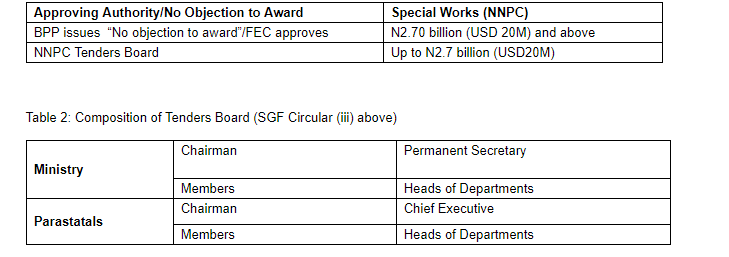
NNPC had cause to clarify severally from Bureau of Public Procurement (BPP) as to the composition of NNPC Tenders Board and the role of NNPC Board appointed by Government. The following clarifications were made.
- The BPP expressly clarified that NNPC Tenders Board (NTB) is NOT the same as NNPC Board. The governing board (NNPC Board) is responsible for approval of work programmes, corporate plans and budgets, while the NTB is responsible for approval of day-to-day procurement implementation.
- BPP referred to the SGF circular for the composition of the NTB to compose of the Accounting Officer (GMD NNPC) as the Chairman, with Heads of Department (GEDs) as members with the Head of procurement (GGM SCM) serving as the Secretary of the NNPC Tenders Board.
The above clarifications of the provisions of the procurement process show that approvals reside within the NTB and where thresholds are exceeded, the NNPC refers to FEC for approval. Therefore, the NNPC Board has no role in contracts approval process as advised by BPP.
As can be seen, all these clarifications were sought and obtained prior to August, 2015 and were implemented by Dr. Kachikwu as the GMD of NNPC. Dr. Kachikwu also constituted the first NNPC Tenders Board on 8th September, 2015 and continued to chair it until his exit in June, 2016.
Typical NNPC Contracting Process
- Approval of project proposal and contracting strategy by NTB.
- Placement of adverts for expression of interest in electronic and print media.
- Soliciting for tender (Technical and Commercial)
- Tender evaluation
- Tender approval by NTB for contracts within its threshold; otherwise
- Obtain BPP certificate of no objection before presentation to FEC.
- Present to FEC for approval.
All Contracts in NNPC follow the above procedure.
SPECIFIC CONTRACTS MENTIONED IN THE HONOURABLE MINISTER OF STATE FOR PETROLEUM RESOURCES’ (HMSPR) LETTER TO MR. PRESIDENT
- Crude Oil Term Contract (COTC)- valued at over $10bn
It is important to state that the COTC is not a contract for procurement of goods, works or services; rather it is simply a list of approved off-takers of Nigerian crude oil of all grades. This list does not carry any value, but simply state the terms and conditions for the lifting. It is therefore inappropriate to attach a value to it with the aim of classifying it as contract above Management limit.
In arriving at the off-takers list for 2017/2018 COTC, the following steps were followed:
- Adverts were placed in National and International print media on Monday, 17th October, 2016.
- The bids were publicly opened in the presence of all stakeholders (NIETI, DPR, BPP, Civil Society Organisations, NNPC SCM Division and the press as well as live broadcasts by the NTA and other TV stations).
- Detailed evaluation was carried out and the short list of the successful off-takers was presented to the approving authority (Mr. President) for consideration and approval.
- Thereafter, NNPC published the list of the successful off-takers in newspapers and NNPC’s official website.
This has been the standard procedure and it is the same process adopted during the 2016/2017 COTC when the HMSPR was the GMD.
In conclusion, due process has been fully followed in the shortlisting of the off-takers of the Nigerian crude oil for the current term 2017/2018.
- The Direct Sale Direct Purchase (DSDP) Contract- valued at over $5bn
Like the COTC, the DSDP is not a contract for any procurement of goods, works or services, rather it is simply a list of off-takers of crude oil and suppliers of petroleum products of equivalent value.
This list does not carry any value, but simply state the terms and conditions for the lifting and supply of petroleum products. It is therefore mischievous to classify it as contract and attach a value to it that is above Management’s limit.
In arriving at the off-takers list for 2017/2018 DSDP, the following steps were followed:
- Work plans and execution strategy for the DSDP was granted by the approving authority (Mr. President).
- Adverts were placed in National and International print media and NNPC website on Thursday, 22nd December, 2016.
- The bids were publicly opened in the presence of all stakeholders (NIETI, DPR, BPP, Civil Society Organisations, NNPC’s SCM Division and the press as well as live broadcast by the NTA and some TV stations).
- Detailed evaluation was carried out and the short list of the successful off-takers was presented to the approving authority (Mr. President) for consideration and approval.
This has been the standard procedure and it is the same process adopted during the 2016/2017 DSDP when the HMSPR was the GMD.
In conclusion, it has been confirmed that due process has been followed in arriving at the shortlist of the DSDP partners for the 2017/2018 cycle.
- The Ajaokuta-Kaduna-Kano (AKK) Gas Pipeline Contract
The AKK Gas pipeline project is a contractor financed contract. The process adopted for this contract is as follows:
- Approval of project proposal and contracting strategy was given by NTB.
- Placement of adverts for expression of interest in some National and International print media and NNPC’s website.
- Expression of interest for pre-qualification received and evaluated.
- Technical and Commercial tenders issued and evaluated
- NTB considered and endorsed tender evaluation result for FEC approval since this contract is above NTB’s threshold subject to obtaining the following certificates of no objections:
- BPP certificate of no objection (obtained).
- Certificate of no objection from Infrastructure Concession and Regulatory Commission (ICRC) (obtained).
- Certificate of no objection from Nigerian Content Monitoring & Development Board (NCMDB) (being awaited)
BPP and ICRC certificates have been obtained, while that of NCDMB is being awaited after which the contract will be presented to FEC for consideration and approval.
Thus, due process is being followed in the processing of this contract.
- Various Financing Arrangements Considered with IOCs;
The financing arrangements reported as contracts are part of the process of exiting Cash Call approved by the FEC. It entails negotiations with JV Partners on alternative funding of some selected projects through third party financing to bridge the funding gap associated with Federal Government’s inability to meet its cash call contributions.
The third party financing option emanates from the appropriation act provisions that allow sourcing of financing outside regular cash call contributions. Upon approval of the calendar year’s operating budget, the NNPC in conjunction with its JV partners commence the necessary process for accessing financing to bridge the funding gap.
Section 8 sub-sections (1) and (4) of the NNPC Act CAP N123 requires that all NNPC borrowings must be approved by Mr. President. Specifically, it provides that:
(1) Subject to the other provisions of this section, the Corporation may, from time to time, borrow by overdraft or otherwise howsoever such sums as it may require in the exercise of its functions under this Act.
(4) Where any sum required aforesaid –
- a) Is to be in currency other than Naira; and
- b) Is to be borrowed by the Corporation otherwise than temporarily,
- c) The Corporation shall not borrow the sum without the prior approval of the President.
Due Process:
- NAPIMS and JV partner identify bankable projects that require financing and sends to NNPC Corporate Finance to assist in procuring financing.
- Constitution of Joint Financing Team (JFT) between NNPC and the JV Partner.
- JFT NNPC invites Request For Proposals (RFPs) from Financial Institutions.
- Submitted RFPs are evaluated and beauty parade conducted to determine most cost-efficient proposal.
- Negotiated Financing Strategy, Term-sheets, Structures and pricing are presented for NNPC Management’s (NTB) approvals.
- NNPC presents the renegotiated terms for approval of Mr. President.
- NNPC executes the resultant Agreement.
Financings taken under this Administration: Approx. $3bn are as follows:
All established due process as enumerated above has been observed leading to the securing of financing for the following projects in 2016/2017:

These are not procurement projects as described by the PPA, 2007. However, all established due processes as enumerated above were followed.
The NPDC Integrity Upgrade and Development Projects
All the NPDC procurement contracts were subjected to the approved procurement procedures as described in respect of the AKK Gas Pipeline project above. There were no breaches of any extant procurement processes. For the benefit of doubt, it is confirmed that there is no single NPDC contract that has been approved by the relevant Tenders Board beyond its limit of financial authority and there is no single contract that is in the $3Bn to $4Bn range claimed in the write-up.
Conclusions
From the foregoing, the allegations were baseless and due process has been followed in the various activities.
Furthermore, it is established that apart from the AKK project and NPDC production service contracts, all the other transactions mentioned were not procurement contracts. The NPDC production service contracts have undergone due process, while the AKK contract that requires FEC approval has not reached the stage of contract award.
Ndu Ughamadu
Group General Manager
Group Public Affairs Division,
NNPC, Abuja.
October 9, 2017.
Economy
Naira Further Falls to N1.355/$1 at Official FX Market

By Adedapo Adesanya
The woes of the Nigerian Naira in the Nigerian Autonomous Foreign Exchange Market (NAFEX) further continued on Tuesday, February 24.
During the session, the domestic currency weakened against the United States Dollar by N6.13 or 0.45 per cent to N1,355.37/$1 from the N1,349.24/$1 it was traded in the previous trading day.
The local currency also moved southwards on Tuesday in the same market window against the Pound Sterling after it lost N6.39 to trade at N1,828.26/£1 versus Monday’s closing price of N1,821.87/£1, and against the Euro, it depreciated by N4.94 to close at N1,596.36/€1, in contrast to the preceding session’s N1,591.42/€1.
Similarly, the Naira crashed against the US Dollar at the GTBank FX counter yesterday by N4 to settle at N1,361/$1 versus the N1,357/$1 it was exchanged a day earlier, and at the parallel market, it remained unchanged at N1,365/$1.
The fall of the Naira coincided with the Central Bank of Nigeria (CBN) buying US Dollars from the market to slow down the rapid rise of the nation’s legal tender. Latest information showed that last week, the apex bank bought about $189.80 million to reduce excess Dollar supply and control how fast the Naira was gaining value.
The rationale was to keep foreign investors from pulling their money out of Nigeria’s fixed-income market. If they sell their investments, it could increase demand for US Dollars and lead to more Dollar outflow from the economy.
Meanwhile, Mr Yemi Cardoso, the Governor of the CBN, said Nigeria’s gross external reserves have risen to $50.45 billion – the highest level in 13 years, while speaking after the 304th meeting of the monetary policy committee (MPC) of the CBN held on February 23 and 24.
The committee also reduced interest rates by 50 basis points to 26.50 per cent from 27 per cent after inflation eased in January 2026.
As for the cryptocurrency market, losses on concerns by embattled software businesses that artificial intelligence (AI) tools will destroy their business models continued and overturned some rallies on Tuesday.
Binance Coin (BNB) lost 2.1 per cent to sell for $585.41, Cardano (ADA) dropped 1.8 per cent to trade at $0.2595, Dogecoin (DOGE) went down by 1.5 per cent to $0.0920, Bitcoin (BTC) shrank by 1.2 per cent to $64,098.80, Litecoin (LTC) slipped 1.1 per cent to $51.31, Ripple (XRP) slumped 0.6 per cent to $1.35, and Ethereum (ETH) declined by 0.4 per cent to $1,857.75.
However, Solana (SOL) appreciated by 0.2 per cent to sell at $78.95. while the US Dollar Tether (USDT) and the US Dollar Coin (USDC) traded flat at $1.00 each.
Economy
Oil Slides as Iran Signals Willingness to Seal US Nuclear Deal

By Adedapo Adesanya
Oil depreciated on Tuesday after Iran said it was prepared to take any necessary steps to clinch a deal with the United States ahead of nuclear talks later this week, with Brent futures shedding 72 cents or 1.0 per cent to trade at $70.77 per barrel, and the US West Texas Intermediate (WTI) futures declining by 68 cents or 1.0 per cent to $65.63 a barrel.
Iran, the third-biggest crude producer in the Organisation of the Petroleum Exporting Countries (OPEC), and the US will hold a third round of nuclear talks on Thursday in Geneva, Switzerland.
America wants Iran to give up its nuclear programme, which the country has denied trying to develop an atomic weapon.
Meanwhile, Iran’s deputy foreign minister said on Tuesday that it was ready to take any necessary steps to reach a deal with the US.
However, the US State Department is pulling out non-essential government personnel and their families from its embassy in Beirut, Lebanon, as concerns mount about the risk of a military conflict with Iran.
The US has deployed a vast naval force near the Iranian coast ahead of possible strikes on the Islamic Republic. The American president, on February 19, said he was giving Iran about 10 to 15 days to make a deal.
Also, the US began collecting a temporary new 10 per cent global import tariff on Tuesday, but President Trump’s administration was working to increase it to 15 per cent, a development that has led to confusion after the country’s Supreme Court ruling.
On the supply front, trading houses and buyers of Venezuelan oil have chartered the first very large crude carriers to export from the South American country since a supply deal began between the US and Venezuela. This is set to speed up shipments from March while boosting deliveries to India.
The European Commission will submit a legal proposal to permanently ban Russian oil imports on April 15.
The American Petroleum Institute (API) estimated that crude oil inventories in the United States rose by 11.4 million barrels in the week ending February 20, after falling by 609,000 barrels in the week prior. Official data from the US Energy Information Agency (EIA) will be released later on Wednesday.
Economy
Nigeria to Export New Crude Grade Cawthorne in March

By Adedapo Adesanya
The Nigerian National Petroleum Company (NNPC) Limited is set to commence export of a new light, sweet crude grade known as Cawthorne from March 2026.
According to a report by Reuters, an NNPC spokesperson confirmed the development, describing it as part of efforts to increase output and consolidate Nigeria’s recent recovery in crude oil production.
The move aligns with Nigeria’s broader strategy to boost production after years of constraints caused by pipeline vandalism, crude theft, and unrest in oil-producing regions.
This follows the launch of two other new grades, Obodo in 2025 and Utapate in 2024, Nigeria, whic,h as Africa’s top oil exporter, seeks to strengthen its standing within the Organisation of the Petroleum Exporting Countries and its allies (OPEC+)
Cawthorne crude is scheduled for export in the third week of March and has an API gravity of 36.4, making it similar in quality to Nigeria’s Bonny Light, which is prized for high petrol and diesel yields.
According to Reuters, citing a trading source, the state oil national company issued a tender last week for cargo loading between March 24 and 25.
Analysts at Kpler noted that the new grade is expected to be exported via the Floating Storage and Offloading (FSO) vessel Cawthorne, which has a storage capacity of about 2.2 million barrels. The vessel is designed to enhance transportation and production from Oil Mining Lease (OML) 18 and nearby assets in the Eastern Niger Delta.
Kpler estimates that, based on storage capacity, Cawthorne could increase Nigeria’s crude and condensate output from roughly 1.65 million barrels per day to around 1.7 million barrels per day for the remainder of the year.
Nigeria’s crude oil production recently dropped from the OPEC+ quota of 1.5 million barrels per day, with output at 1.48 million barrels per day recorded in January, according to OPEC data.
Beyond increasing Nigeria’s crude offerings to the international market, the introduction of Cawthorne could also attract buyers seeking specific light, sweet crude qualities, buoy foreign exchange earnings, which would help strengthen government revenue and ease borrowing needs.
New crude grades are typically differentiated by sulfur content, API gravity, and production source, enabling producers to target specific refinery configurations and market segments.
In November 2024, NNPC officially launched the Utapate crude oil blend in the international market, describing it as a milestone for Nigeria’s export profile.
Earlier in July 2024, NNPC and its partner, Sterling Oil Exploration & Energy Production Company (SEEPCO), lifted the first 950,000-barrel cargo of Utapate crude, which was shipped to Spain.
-

 Feature/OPED6 years ago
Feature/OPED6 years agoDavos was Different this year
-
Travel/Tourism10 years ago
Lagos Seals Western Lodge Hotel In Ikorodu
-

 Showbiz3 years ago
Showbiz3 years agoEstranged Lover Releases Videos of Empress Njamah Bathing
-

 Banking8 years ago
Banking8 years agoSort Codes of GTBank Branches in Nigeria
-

 Economy3 years ago
Economy3 years agoSubsidy Removal: CNG at N130 Per Litre Cheaper Than Petrol—IPMAN
-

 Banking3 years ago
Banking3 years agoSort Codes of UBA Branches in Nigeria
-

 Banking3 years ago
Banking3 years agoFirst Bank Announces Planned Downtime
-

 Sports3 years ago
Sports3 years agoHighest Paid Nigerian Footballer – How Much Do Nigerian Footballers Earn


